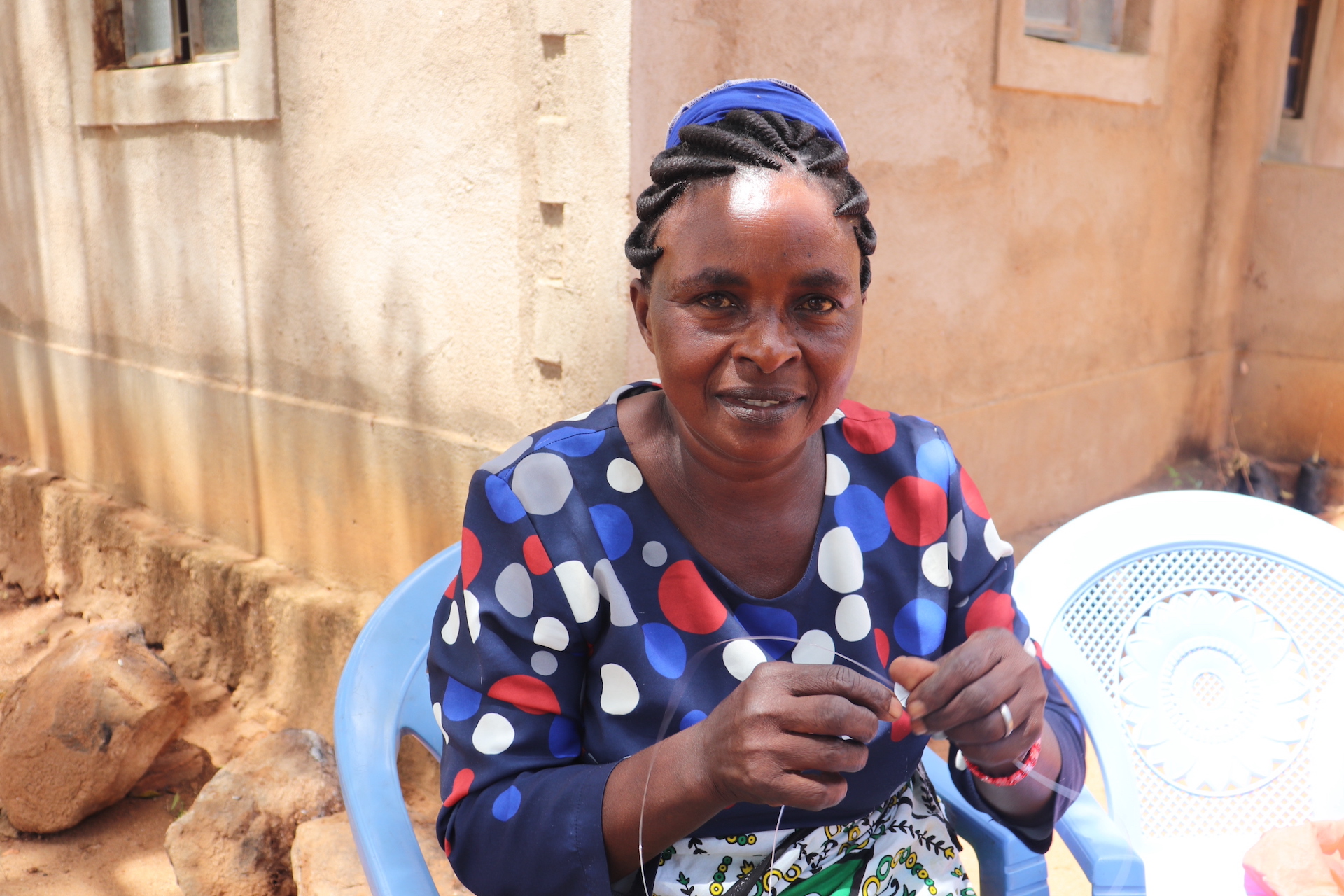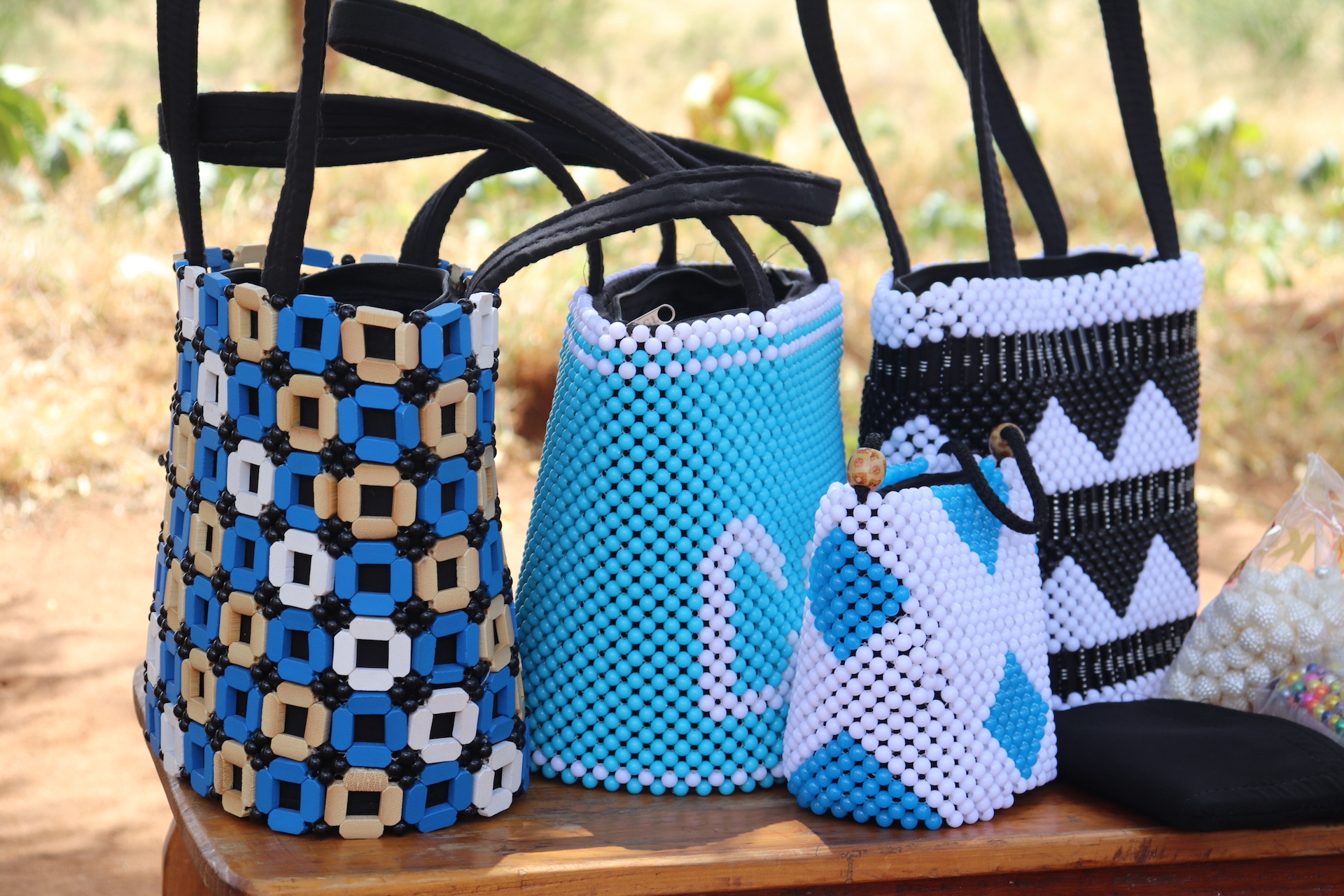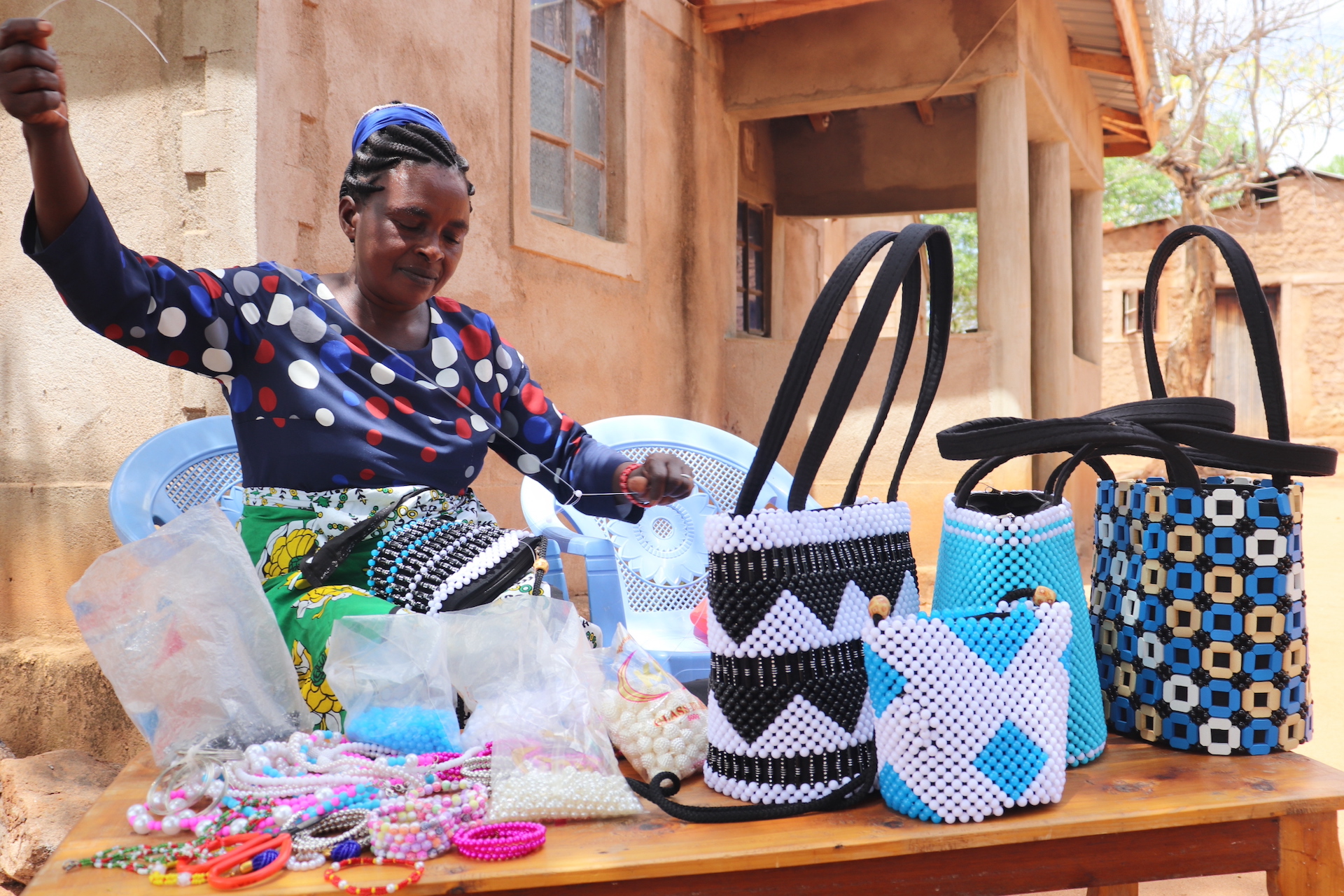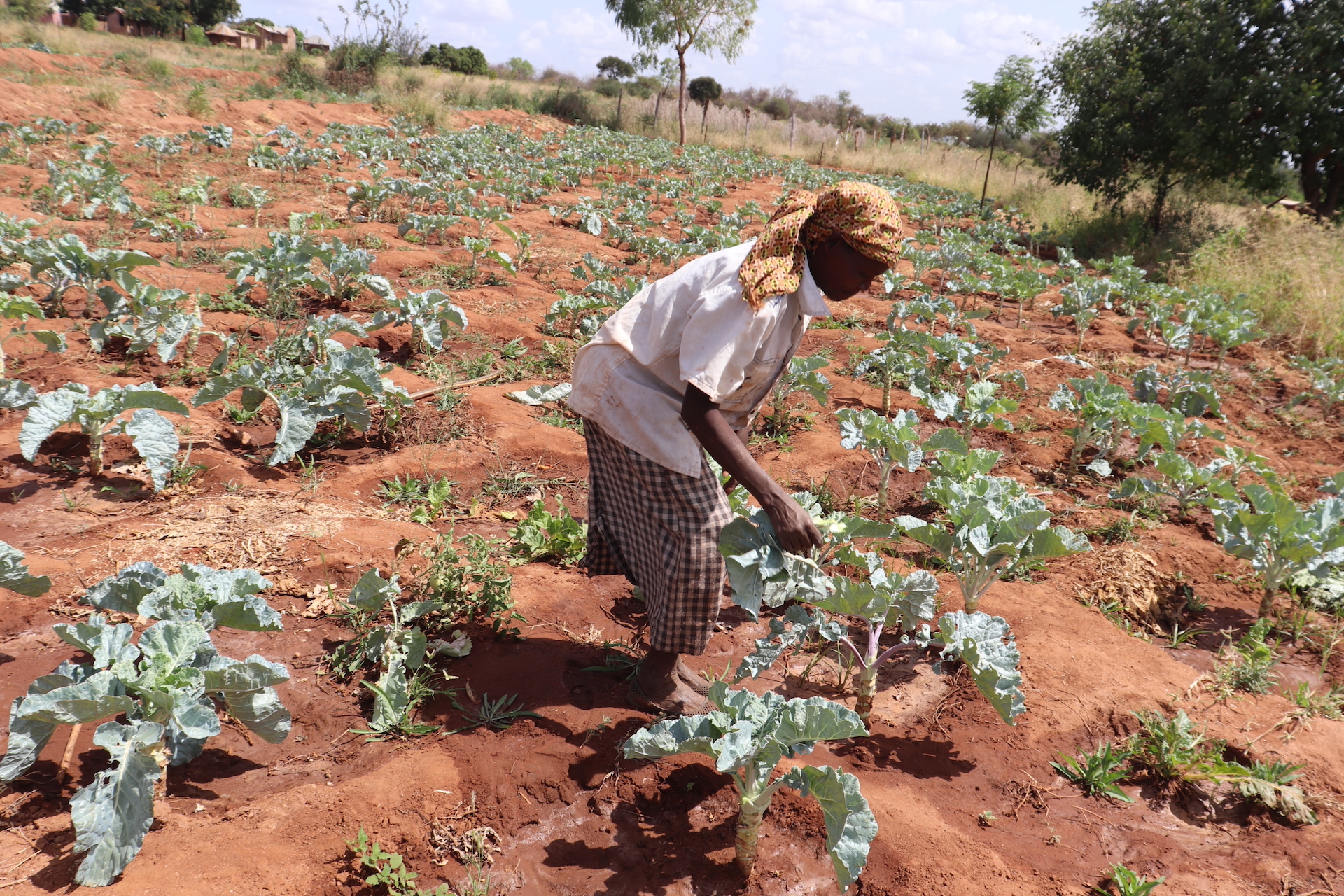Empowering Women in Semi-Arid Rural Kenya through Livelihood Improvement
Background
AID’s Kenyan partner, Anglican Development Services Eastern (ADSE), extended its Livelihoods Improvement project in two Kenyan counties for an extra year (ending June 2023). This was to make sure the people belonging to the various self-help groups that make up the two Community-based Organisations (CBOs) that AID supports through ADSE, could be sure the benefits they got from the project would be sustainable beyond the project’s life.
Women are primary participants and beneficiaries of this project, with more than twice the participation rate of men (2,456 women compared with 1,121 men). Women are also increasingly taking leadership roles in the project.
As well as training and support provided by technical experts at ADSE, the project has been supported by local county government ministries. They have provided some of the training to community members and have assisted ADSE staff in selecting sites for their various water structures that have been built during the life of the project.
Planning is key, and none of the outcomes achieved by the project could happen without the annual planning process and regular meetings and reporting of the CBOs. Training has to be pitched at the right people and take place at the right time, or it will be less effective. For example, last year, during the national elections, many people stayed away from training because of fears of unrest.
Another contributor to the success of the project is the fact that churches and the local community members offer their land and property to the project free of charge so that trainings, meetings, and demonstrations of new agricultural technologies can take place at minimal cost.
This story from Agnes Mwikali Makau explains how the project is impacting on the individuals and groups who are part of it.
Agnes is a widow, living in Syethe village in Makueni County, Kenya. She has six children and is the only bread winner in the family. She belongs to Syethe Adult Self-Help Group.
Agnes explains, “Before ADSE interventions in our area, we used to walk eight kilometres one way to fetch water from the River Kikuu for our livestock and other household domestic use. We had no water structures along the River Syethe which is closer to us. Over the last year, rains have also been unpredictable causing the seasonal rivers to dry out fast. This meant we could not harvest enough food and we became dependant on buying or borrowing from our neighbours. The environment here was bare and dry since we didn’t have any knowledge about soil and water conservation measures and what crops to plant.”
Once ADSE came to her area, Syethe Self-Help Group joined the newly created Community-based Organisation (CBO). In fact, Agnes represented her group during the development of her CBO’s constitution and participated in the leadership training provided by ADSE.
“When ADSE came, all the self-help groups were encouraged to apply to join the CBO. Luckily, my group was short-listed, and they sent me to represent them in the meetings. ADSE trained groups on village savings and loaning (VSL) schemes, and I became a member immediately. Over the five years we have been supported by ADSE, I have participated in the construction of Kwa Usingi sand dam and a shallow well which is on my farm. I gave the land, the ballast and sand for free to the entire community to benefit. This project was discussed with the CBO Management Committee as well technical experts from ADSE. They helped us identify the best site.”
Since COVID-19 and the drought, and the steep increase in the cost of living in Kenya, Agnes attended several important trainings on basket-weaving and necklace and bangle-making which can provide income additional to that made by farming.
Agnes continues: “Before the ADSE trainings, I also did not understand that with my own hands I can create income easily and support my family without struggle. All this time my children were being chased from their schools because I couldn’t afford to pay their fees. We had huge parcels of land, but they were very unproductive and so not beneficial to us. So far, I have made a total income of 10,800 shillings (about $135) by selling four baskets, three pouches and 18 necklaces or bangles. I used the money to buy more materials and I put into the VSL the money left over. I also managed to train women who were not members of our self-help group in necklace and bangle making’’.
Agnes also attended ADSE’s training on making biopesticides and fertilizers, and how to establish kitchen gardens.
“I dug my own shallow well after seeing the ADSE one functioning well. And so did two of my neighbours. I usually sell water from the shallow well at a price of 20 Kenya shillings per 20 litres jerry can (about AUD25 cents). The money I get is used to buy schoolbooks, pay school fees, and buy food for the household.
“In my village, 24 farmers have adopted kitchen gardens and the use of vertical bags for increased growing capacity. We now eat green nutritious vegetables and have a much more varied diet from previously when we only normally ate corn and beans each day.
“The community here has started to plant trees for a nice vegetation cover, and 21 households have switched to using energy saving jikos (stoves). I have one in my kitchen, and it saves a lot on firewood.”
Agnes and people like her have also benefited from embracing efficient water use and moisture retention strategies in their crop production, including using conservation agriculture and zai pits and planting drought tolerant crops.
In recent years, the project has also shifted its focus away from mainly constructing sand dams, to more underground water sources which can provide more water to many people without so much reliance on rains.
Agnes concludes, “This project is really good and helpful to us because we are able to see change compared to some years back when we had nothing. ADSE has really changed our thinking and I realise how we used to do our things normally without improvement. I now only have to walk one kilometre to get water, instead of the previous eight kilometres. We used to waste many hours on our way to and from the River Kikuu, but after ADSE supported our group to construct a sand dam and a shallow well, we can now fetch water in less than 30 minutes. The saved hours are now used for productive work at home. The water we get is used in the home for domestic use and for the watering of kitchen gardens.”
See also:
https://www.abmission.org/news/project-updates/kenyan-project-evaluation-2022/
AID acknowledges the support of the Australian Government through the Australian NGO Cooperation Program (ANCP)

Agnes making her baskets at home. © ADSE. Used with permission.


